Hindus, their communities, and their traditions face a wide range of issues in navigating contemporary society. An underpinning of these tensions is that contemporary Hindus live and work in societies with values that may be at variance with those of their religious and cultural traditions. Issues they encounter may include those of identity, values, affiliation, and ethnicity. This series of talks aims to provide an opportunity for scholars to dialogue and share research related to the experiences of contemporary Hindu communities and adherents in their intersections with their host communities. All are welcome to participate.
Angela Burt (Australian Catholic University)
Friday 27 September 2024, 11am UTC
Register from here. After you have registered, a zoom link will be sent to you two days before the event.
This presentation will examine key themes from Leading the Hare Krishna Movement: The Crisis of Succession in The International Society for Krishna Consciousness published in the Routledge New Religions series in May 2024. The book examines issues of leadership and succession in the International Society for Krishna Consciousness (ISKCON) which was founded by A. C. Bhaktivedanta Swami Prabhupada in 1966. After the founder’s death in 1977, the movement was led by a group of gurus in a “zonal system” until their authority was challenged and reformed in the mid-1980s. At the heart of the book is an exploration of the developments, conflicts, and defining characteristics of leadership in ISKCON in this decade. An analysis of Indian and Western conceptions of hierarchy, status, power and authority, and the routinisation of charisma are key to understanding the events of the time. With careful analysis of interviews and documentary evidence, the research offers a unique insight into ISKCON as an organisation and the broader religious community in which ISKCON is located.

Angela R. Burt teaches religion and sociology at Australian Catholic University. She has documented the early history of the Hare Krishna movement in her role as project manager and researcher for the ISKCON Oral History Project since its inception in 2003. She is the author of Hare Krishna in the Twenty-First Century, published in the Cambridge University Press Elements in New Religious Movements series in 2023.
Dr Monika Hirmer (Friedrich-Alexander Universität, Erlangen–Nürnberg, Germany)
Friday 29 November 2024, 5pm UTC
South Asian tantric traditions have fascinated Western scholars ever since the first colonial encounters, when the term ‘Tantrism’ was coined to indicate a set of practices deemed irrational and morally deprived, as opposed to the supposedly rational and morally superior religious practices of the West. This Orientalist view has nowadays been superseded by more nuanced perspectives, which acknowledge the complexity of South Asian tantric traditions, and emphasise, as some of their primary features, the presence of a guru, the importance of rituals and yantras, and pervasive correspondences between the micro- and macrocosmic realms. Acknowledging the inherent fluidity of tantric practices has paved the way for the most recent scholarly developments in the field, which explore the thus-far understudied interactions between pan-Indian and folk traditions, and mainstream and unconventional ritual practices in South Asia.
While tantric scholarship has advanced significantly, the fact that its focus is mostly limited to South Asia excludes some of the most prominent cross-cultural interactions, namely those engendered by the diffusion of tantric practices in the West. In fact, tantra in the West remains largely ignored by eminent scholars in the field of tantric studies, and is instead explored under different rubrics, such as ‘new religious movements’, ‘esoteric traditions’ and ‘Neotantra’, giving rise to a schism between tantric traditions in South Asia and tantric traditions in the West. Without denying the distinctiveness of tantra in the West and its problematic appropriation strategies, I argue that, as long as the field of tantric studies fails to incorporate Western tantric traditions, it recreates the same colonial dichotomies and violent hierarchies that were advanced by Orientalist scholars—only that, this time around, the ‘Other’ is the West, in opposition to a more authentic and, therefore, superior South Asia.
Building on my fieldwork on tantra in South Asian and Western contexts, I reflect on the discourse informing tantric studies and uncover the rules that, ultimately, exclude Western tantric practices from this field of studies.

Dr Monika Hirmer is a postdoctoral fellow at the Centre for Advanced Studies (CAS-E) ‘Alternative Rationalities and Esoteric Practices from a Global Perspective’ at the Friedrich-Alexander Universität, Erlangen–Nürnberg (Germany), where she researches tantra from a cross-cultural perspective.
Monika’s area of research lies at the intersection of anthropology and philosophy and spans Goddess traditions, tantric traditions, non-anthropocentric cosmologies and ontologies, and decolonial studies, with a focus on South Asia. She obtained her PhD in Religions and Philosophies from SOAS, University of London, preceded by an MPhil in Anthropology of Religion from the University of Hyderabad, India, and an MA in South Asian Area Studies from SOAS. She also holds a BA in Political Sciences from the University of Florence, Italy.
Monika is a certified Teaching Fellow (FHEA) who has been teaching at SOAS in the departments of Religions and Philosophies and Politics and International Studies. In 2020 Monika co-founded the open access, multilingual and peer reviewed publishing platform Decolonial Subversions, of which she is Co-Editor-in-Chief.
Prof. Ravi Gupta (Utah State University)
Thurs 1 August 2024, 6pm UTC
Religion and ecology are indelibly linked in India. Sacred texts, devotional narratives, and theological convictions often motivate environmental action and provide cultural resources for ecological initiatives. Religious concepts and stories are often reinterpreted by practitioners in the face of new environmental challenges. For this reason, it is paramount to draw out the elements of a tradition’s theology that can support sustainable ecological relationships, as well as honestly examine those elements that hinder such relationships. This presentation will begin that task, by outlining some building blocks of a Gaudiya Vaishnava theology of the environment.

Ravi M. Gupta holds the Charles Redd Chair of Religious Studies and serves as Professor and Department Head of the Department of History at Utah State University. He is the author or editor of four books, including an abridged translation of the Bhagavata Purana (with Kenneth Valpey), published in 2017 by Columbia University Press. Gupta has received four teaching awards, a National Endowment for the Humanities summer fellowship, and two research fellowships at Oxford. He is a Permanent Research Fellow of the Oxford Centre for Hindu Studies and a past president of the Society for Hindu Christian Studies. His current research focuses on the Bhagavata Purana’s Sanskrit commentaries. He enjoys teaching World Religions, Hinduism, Sanskrit, and Religious Studies Theory and Method.
Laura von Ostrowski and Lina Aschenbrenner
Thu 29th Feb 2024, 10am UTC
Register from here. After you have registered, a zoom link will be sent to you two days before the event.
Much of recent yoga studies research centers around the body as crucial element to differing yoga practices and therefore crucial element to yoga research. In this context, one question has become increasingly relevant: How to do body-focused and embodied research in the different fields of yoga? To address this question, in our presentation, we first point to the difficulty of focusing on the body as important research entity, yet circumventing a bodily and performative level. We then suggest that the social and cultural relevance of yoga practices manifests in and via the body as a crucial part of the practice, and therefore a sole focus on discourses about and verbalizable knowledge of the body in the ethnographic fields cannot be enough. Embodied processes are themselves a substantial part of the ethnographic research field and need to be taken into account. To underline and exemplify our claim, we refer to Laura von Ostrowski’s yoga ethnographies. Based on our own experiences with body-focused research, we then propose and discuss a solid, academic framework of embodiment as one way to do body-focused and embodied ethnographies.
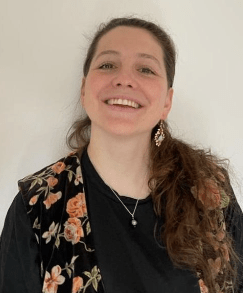
Lina Aschenbrenner is a postdoctoral researcher in the study of religion with a background in cultural studies. She explores material, performative, aesthetic, affective, embodied, and experiential dimensions of contemporary religious and cultural phenomena. Her book Neo-Spiritual Aesthetics (Bloomsbury 2023) is based on and dedicated to body-focused ethnography. She works for the DFG-funded research center Esoteric Practices and Alternative Rationalities from a Global Perspective (CAS-E).Outside of academia, she creates dance with and for all.
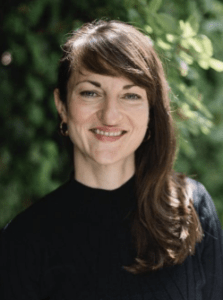
Laura von Ostrowski‘s book to her PhD-thesis was published Open Access under the title A Text in Motion in 2022. As a religious scholar, indologist and ethnographer her areas of research include modern and contemporary yoga, the reception history of the Yogasūtra, aesthetics and embodiment. She teaches about the history of modern yoga at the online education portal www.yogastudien.de and is associated with the University of Hamburg, Germany.
Dr Angela Burt (Australian Catholic University)
Thursday 7th December 2023, 8pm UTC
Register from here. A zoom link will be sent once you have registered.
https://www.eventbrite.co.uk/e/the-intersection-of-hinduism-and-contemporary-society-guest-lecture-4-tickets-761726984917
If you experience problems registering, please use the following alternate link:
https://www.ticketsource.co.uk/ochs-hmcs/t-rprnypl
In this seminar presentation, Dr Angela Burt will discuss key themes from her newly published book in the Cambridge University Press Elements in New Religious Movements series entitled, Hare Krishna in the Twenty-First Century. Angela Burt introduces the historical origins of the Hare Krishna movement as a modern manifestation of the Gaudiya Vaishnava tradition, which has its roots in sixteenth century West Bengal, India. The tradition was institutionalized in a modern form in 1966 when it was registered by A. C. Bhaktivedanta Swami Prabhupada as the International Society for Krishna Consciousness (ISKCON) in New York City. Using frame alignment and resource mobilization as theoretical lenses, Angela Burt examines the beliefs and practices of the movement within the context of its institutional and community dynamics. She also considers the Hare Krishna movement’s changing relationship with mainstream society and its shifting demographic makeup, including the Indian-Hindu community’s role in the movement’s efforts to navigate a changing internal and external environment. She discusses the key challenges and controversies that have beset the movement throughout its history and considers how the movement’s responses to a new set of issues and challenges are pivotal for its future direction in the twenty-first century.

Angela R. Burt is a lecturer at the Australian Catholic University, where she teaches religion and sociology. She is the author Hare Krishna in the Twenty-First Century in the Cambridge University Press Elements in New Religions series, and the forthcoming book, Leading the Hare Krishna Movement: The Crisis of Succession in the International Society for Krishna Consciousness published in the Routledge New Religions series. She has documented the early history of the Hare Krishna movement in her role as project manager and researcher for the ISKCON Oral History Project since its inception in 2003.
A. D. Amar (Seton Hall University, NJ)
Thursday, 12th October 2023, 11am–12pm UTC (12pm-1pm GMT)
Register from here: https://www.eventbrite.co.uk/e/hinduism-and-contemporary-society-guest-lecture-3-tickets-715977506997?aff=oddtdtcreator
A zoom link will be sent once you have registered.
This presentation focuses on how learning from the Bhagavad Gita could be used to manage contemporary organizations. It goes into the depth of the foundational messages about humans, work, behaviour, and principles with which the management can connect for incorporating into practice under the new demands due to the evolving characteristics, content and scope of work, and the newer generations of workers. Every management lesson suggested in this presentation is directly derived and properly connected with the Bhagavad Gita. While most of the messages transmit straight, needing no interpretation; nevertheless, those that do need some expanding are properly interpreted. Surprisingly, as I will show, Gita’s relevance to management is so contemporaneous as if either the human behaviour or work demands of the Gita’s period were more like what is happening in our organizations now. Or the needs of the time have changed so much that organizations cannot go by the management principles or practices that have been handed down to them. I will begin with the doctrine of human treatment grounded in what God tells in the Bhagavad Gita within the bounds of their material nature—struggling with the six senses and the mind. By stating that, God lives as “jiva shakti” in every living entity and states that every living entity lives in Him. The Bhagavad Gita brings all living entities to God’s level and asks everyone to treat them as if they are treating Him because humans are multi-potential spiritual entities that work to seek meaning and a place in the larger plan of existence.
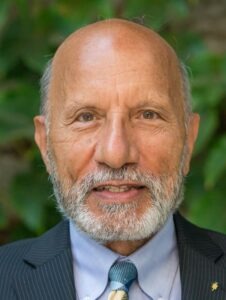
Amar Dev Amar (BS Eng, MS Eng, MBA, M.Phil., Ph.D., Professor of Management, Stillman School of Business, Seton Hall University, New Jersey) is a specialist in knowledge organizations, technology, and innovation management theory. Prof. Amar received 2013 Carolyn Dexter Finalist Award of the Academy of Management (AOM) and 2010 NJBIA Bright Idea Award in Management of the NJPRO Foundation of New Jersey Business and Industry Association (NJBIA). He has 145 works in publications such as the IEEE Transactions on Engineering Management, Harvard Business Review, Organizational Dynamics, IIE Transactions, European Journal of Innovation Management, and the Mid-Atlantic Journal of Business. Dr. Amar has been department chairperson, Director of the Management Development Center (MSU), Director of MBA Assessment, Director of Seton Hall University Comprehensive Achievement Program (SHUCAP) and Director and Editor of the Mid-Atlantic Journal of Business for 12 years. He has served on many Ph.D. committees. Among his published books is Managing Knowledge Workers. Two of his papers were selected Best Paper of the Academy of Management for its 2013 and 2014 annual conferences. In 2019, he won the AOM Best Symposium Proposal Award. He has served on the faculties in the USA, India, United Kingdom, Russia, Poland, and China. He serves on the Middle States Commission on Higher Education.
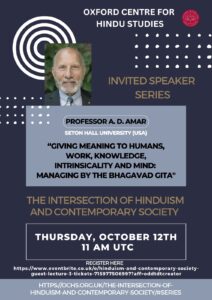
Jens Augspurger
Thursday, 6th July 2023, 10:30–11:30am UTC
Please register for the event here:
https://www.eventbrite.co.uk/e/hinduism-and-contemporary-society-guest-lecture-2-tickets-596450508527
A zoom link will be sent once you have registered.
Spiritual tourism is, unlike other religiously motivated forms of travel, characterised by the specific attention that is placed on the personal growth of the tourist, i.e., their ‘inner journey’. The phenomenon aligns with the broader trend towards self-improvement, self-reference, and self-realisation that is occurring at the (now again) globalised intersection of religion, health, and wellness.
My research seeks to understand spiritual tourism by examining the interplay between the journey (act of travel), the journeyed (destination), and the journeyer (tourist). Using biographical approaches, I conducted research interviews with spiritual tourists who had returned from travel to India either before or at the start of the pandemic. The data suggests that my interlocutors maintained complex correspondences with the places they had journeyed to. Many of these destinations seemed unattainable at the time of the interview during the height of several lockdowns in 2020 and 2021.
In this talk, I will explore how the spiritual tourists often grappled with reflecting on their own impact and identity during their travels. I will then discuss the diverse ways in which my interlocutors have sought to maintain their connections to India, or Yogaland, whether through the computer camera-lens, their personal yoga practice, or imaginative acts of connection.
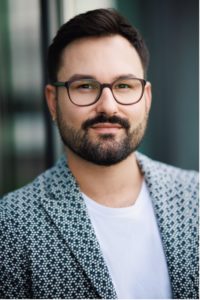
Jens Augspurger is a PhD Candidate at the Department of Religions and Philosophies at SOAS University of London and a member of the school’s Centre for Yoga Studies. His research is located at the various intersections of religion, power, and politics, with a specific focus on spiritual and yoga communities. Jens is also a survivor activist and co-founder of Project SATYA, an initiative dedicated to combating spiritual abuse, coercive control, and institutionalised violence within religious groups.
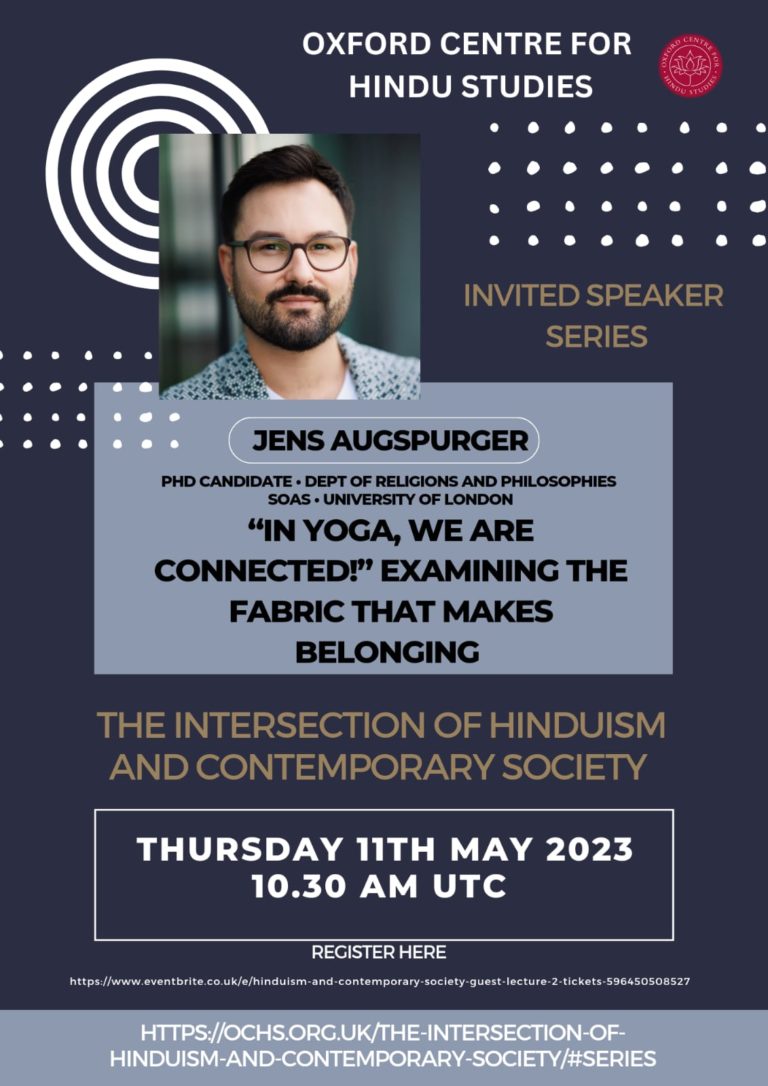
Thursday, 2nd March 2023, 10:30–11:30am UTC
Resister from here: https://www.eventbrite.com/e/560460551597
Prema Goet will be speaking about his experiences and ethnographic research with the Shakta Aghoris during the Ambubachi Mela at the Kamakhya Temple in Assam. He has long term friendships with the Aghoris and has first-hand experiences of their mixing extreme antinomian asceticism with priestly services and philanthropy. He will be speaking on the lives of the Aghoris as well as his own role in representing the group through his work. He has published a photo journal entitled Against the Grain, which he will use to illustrate his presentation.
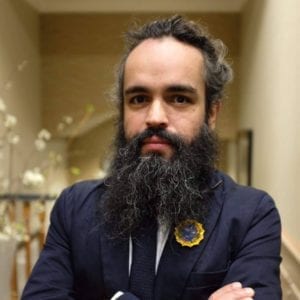
Prema Goet is a multi-disciplinary researcher whose main interest lies in the intellectual history, culture and languages of South Asia. He received his BA in Sanskrit and MA in Philosophy and Religion from The School of Oriental and African Studies (SOAS) – University of London. He is currently a visual-anthropologist researcher for The Śākta Traditions Research Project at the Oxford Centre for Hindu Studies. His interest focuses mainly on the performative ritual practices of various ascetic groups of South Asia. He has extensively worked with various practitioners from the region (India, Nepal and Bangladesh), documenting and producing a vast array of ethnographic works on tantric rituals, worship of the Goddess(es), aghora and yogic practices, etc. Amongst other things, Prema has also produced and recorded various audio-recordings of traditional chantings and music performed by the various groups he has worked with. His 2019 exhibition at the OCHS, The Path of Śakti, was curated and introduced by Prof. Chris Dorsett from The Pitt Rivers Museum – University of Oxford.
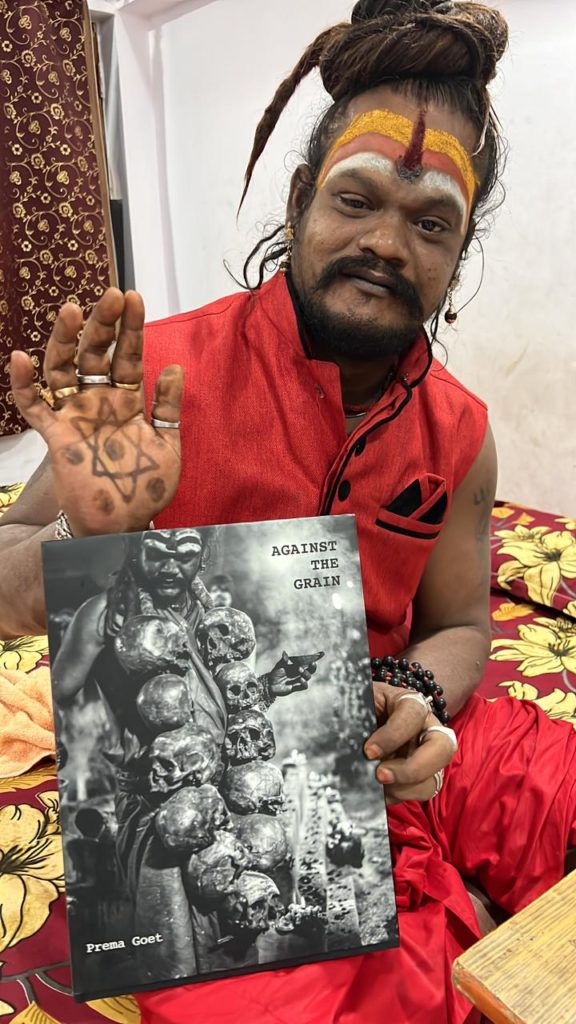
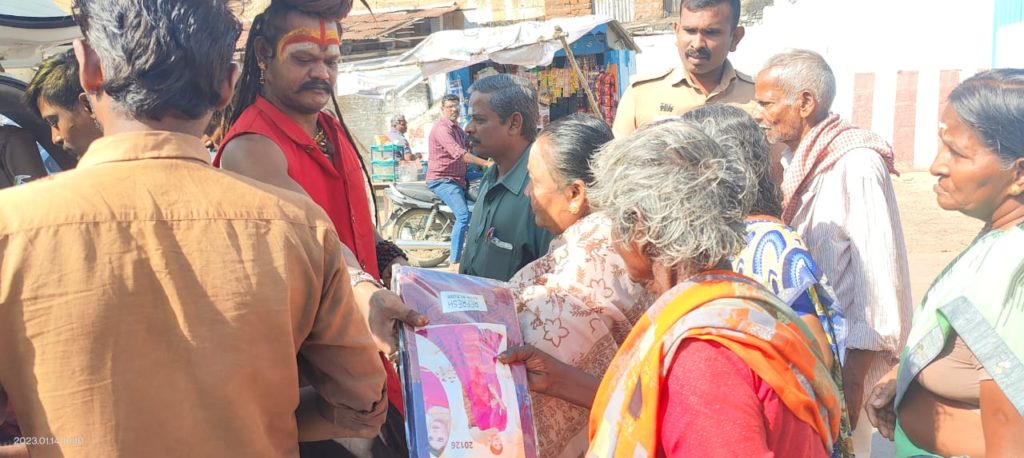
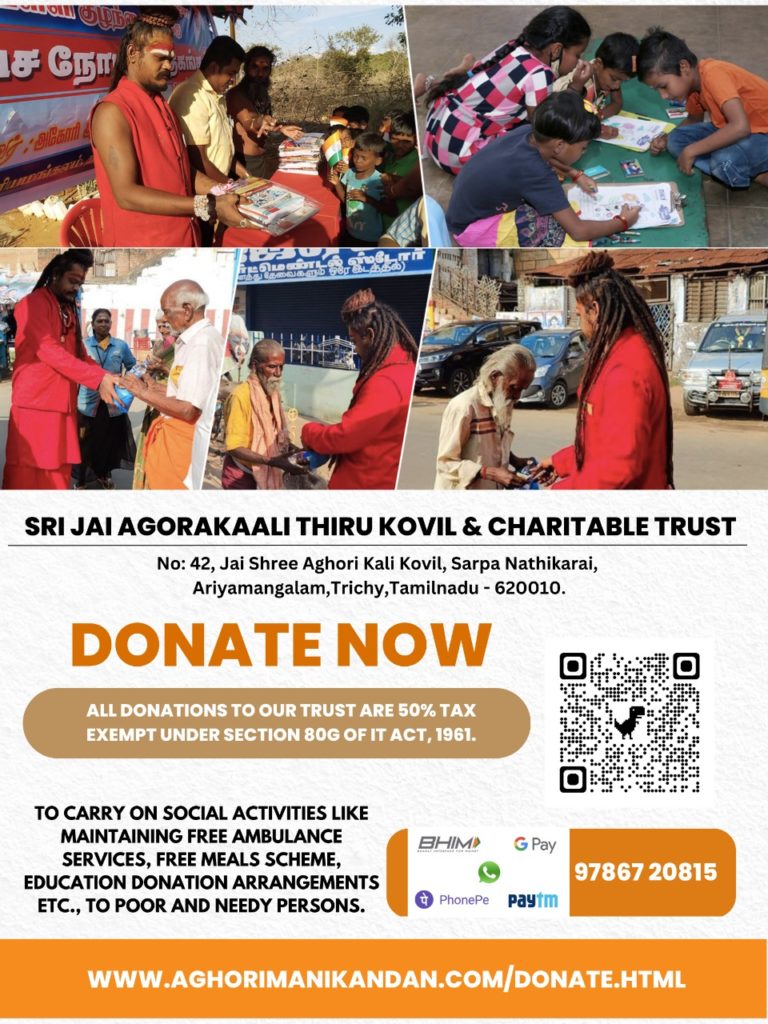
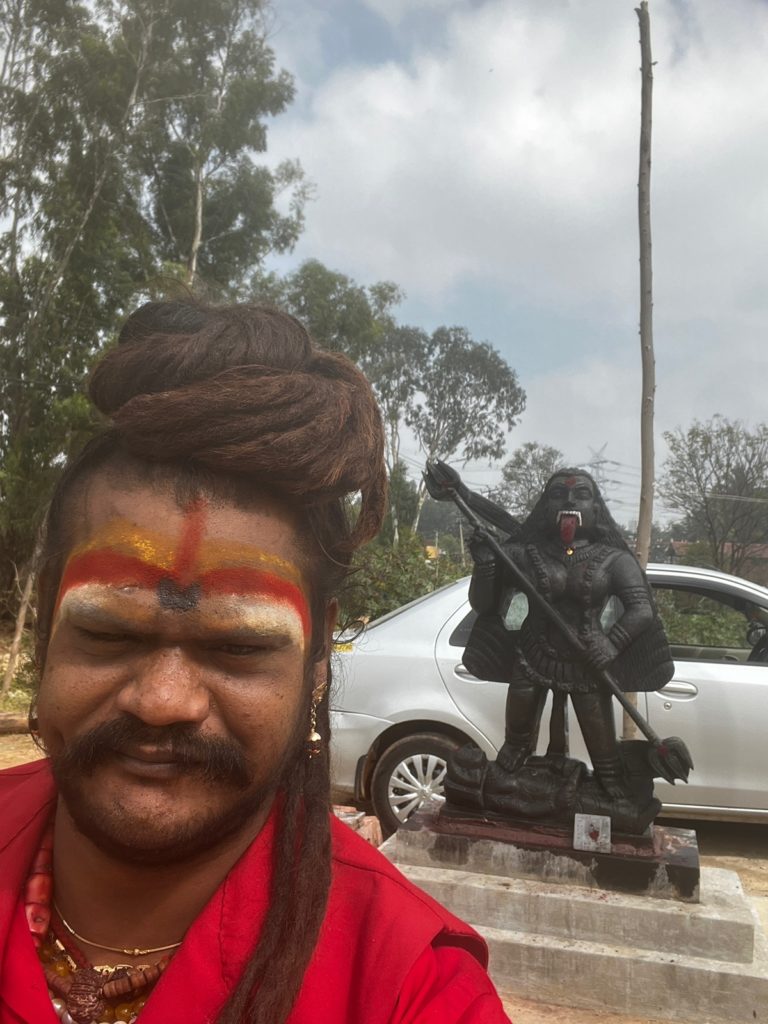
June 2-3 2022
Hindus, their communities, and their traditions face a wide variety of sociological challenges in assimilating into or avoiding modern secular societies. An underpinning of these tensions is that Hindus live and work in the world while simultaneously maintaining a separation from it. Sociological issues that they may encounter include those of identity, value, affiliation, and ethnicity. This conference aims to provide an opportunity for scholars to dialogue and share research related to the experiences of contemporary Hindu communities and adherents as they navigate life within, without, and on the fringes of their religious institutions and host communities. All are welcome to participate.
Download programme for abstracts.
Watch recodings here.
(All times in UTC)
Welcome
12pm
SESSION 1
12:10pm – 1:30pm
Angela Burt
The Changing Relationship of the Hare Krishna Movement with Mainstream Society: An Alignment Perspective
Gustavo H. P. Moura
World Kirtan: Music and Spirituality in a Transcultural Whirlpool
Ace Simpson and Alan Herbert
Rapture and Rupture: Experiences of Former Ashram Residents
SESSION 2
1:30pm – 2:50pm
Tuhina Ganguly
The Wonder of Darshan: Going Beyond the Local and the Visual
Hrvoje Čargonja
Dialectics of Narrative Identity in the Hare Krishna Stories of Religious Experience
Cecilia Bastos
Mind, Body and Subjectivity: The Performance of Yoga and Meditation Practitioners
Welcome
12pm
SESSION 1
12:10pm – 1:30pm
Richa Shukla
Contemporary Hindu Woman: Strangled Soul or an Emancipated One?
Sraddha Shivani Rajkomar
Hinduism and Creole Cultural Memory in Present-day Mauritius
Priyesh Patel
Finding the One: Marriage and Love among Hindus in the UK
SESSION 2
1:30pm – 3:10pm
Gowda Gomathi & Babu Lenin G
Memorial Stones as Social Identity in the Past
Paolo E. Rosati
Cultural Identity and Cultural Memory at Kāmākhyā: A Preliminary Study
Michael Sheludko
Russo-Ukrainian War and Problems of Violence Justification Among Russian and Ukrainian Vaishnavas
Rasa Pranskevičiūtė-Amoson
Acting in the Underground: Life as a Hare Krishna Devotee in the Republic of Lithuania (1979–1989)
Cecilia G. Bastos
T +55 71993661399
E ceciliagbastos@gmail.com
National Museum / Federal University of Rio de Janeiro
Angela R. Burt
T +61 412 439 734
E aburt@ochs.org.uk
Oxford Centre for Hindu Studies
Alan C. Herbert
T +44 7463 138252
E alan@ochs.org.uk
Oxford Centre for Hindu Studies
Ace V. Simpson
T +44 1895 265899
E ace.simpson@brunel.ac.uk
Brunel University London
Oxford Centre for Hindu Studies
13 – 15 Magdalen Street, Oxford OX1 3AE.
UK Tel: 01865 304300
Regd Charity No. 1074458